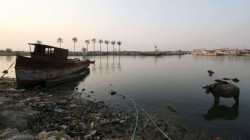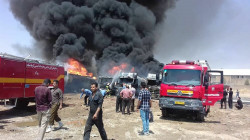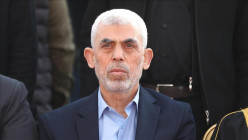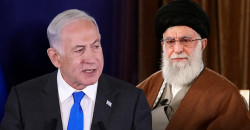“Iraqis are getting fed up with Iran”, The Economist
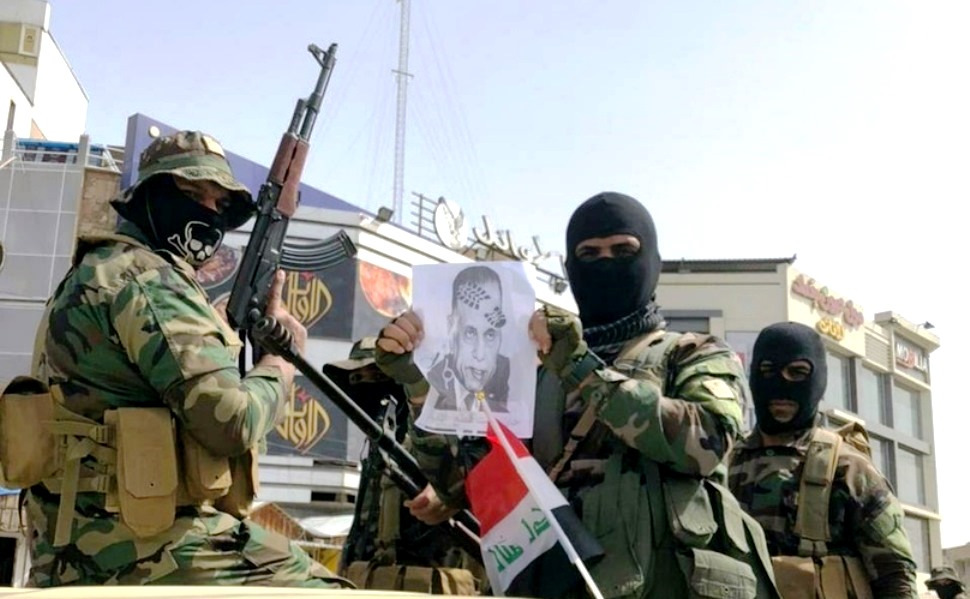
Shafaq News/ The Economist reported an Iraqi army officer describing Qassem Soleimani, as stunningly successful Iranian commander who was killed in an American air strike on Iraqi soil in January 2020, saying at the same time that the billboard glorifying Soleimani in Iraq is “A STAIN ON Iraq’s sovereignty.”
“Many Iraqis once hailed Soleimani as hero for mobilizing local forces that beat back the jihadists of Islamic State. But public sentiment in Iraq has turned. The masses who cheered Iran as a liberator increasingly see it as an occupying power. Iraqi politicians are trying to loosen its grip.” The Economist said.
Iran’s existence in Iraq
On Iran, the weekly Newspaper said “Iranian-backed militias still hold sway in much of Iraq. Many were involved in the violent suppression of anti-government protests that erupted in 2019. Lately, though, they have lowered their profile. They hang fewer placards celebrating their ayatollahs and generals, and appear less often in the streets. They miss the guidance of Soleimani and Abu Mahdi Muhandis, the Iraqi head of an umbrella group of pro-Iranian militias, who was killed in the same air strike. With no clear chain of command, the militias are splintering. They were expected to mark the anniversary of the air strike with a show of force. Thousands of Iraqis marched in Baghdad; the wreck of the car in which Soleimani was killed was displayed. But there were no big retaliatory strikes on American targets.”
Al-Kadhimi is not playing ball
The Economist concluded that Iran has long “used Shia politicians in Iraq to assert influence.” (Shias are a big majority in Iran and a smaller one in Iraq.) But Iraq’s Shia prime minister, Mustafa al-Kadhimi, is not playing ball. Unlike most of his predecessors, “Al- Kadhimi is not from a party that is close to Iran. Since taking office in May he has enforced American sanctions, preventing Iran from repatriating the billions of dollars it earns from exports to Iraq.
“The Prime Minister has also annoyed the militias by restoring state control at some border crossings and removing their men from security posts. At his behest NATO is sending 3,500 new troops.”
“These [Iranian-backed] groups are feeling extremely threatened,” the Newspaper quoted Maria Fantappie of the Centre for Humanitarian Dialogue, a conflict-resolution group based in Geneva as saying.
“Such is the level of distrust that foes of Al-Kadhimi, a former intelligence chief, accuse him of passing Soleimani’s location to the Americans, enabling the air strike. Militiamen have assassinated Al-Kadhimi’s confidants and chased some of his advisers abroad. A group called Kata’ib Hizbollah, with links to Iran, surrounded his residence in June with pickup trucks full of armed men after he moved to arrest some of its members suspected of killing protesters.”
“He was lucky to escape without his head on a plate,” says an observer in Baghdad to the Economist.
Despite this “conflict” with Iran, Al-Kadhimi has shied away from confronting the militias directly. His cabinet includes ministers from pro-Iranian factions, “who are trying to increase the number of militiamen (already in the tens of thousands) on the government payroll”. An Iraqi official recalls the prime minister fretting: “If you don’t pay them, they’ll bomb the Americans.”
Targeting Saudi Arabia
“The Iranian-backed have targeted Saudi Arabia in January explosive-laden drones launched from inside Iraq crashed into a palace in Riyadh, the kingdom’s capital. Iraqi officials say militias are massing near the border with Saudi Arabia, armed with 1,400 missiles. Where Al-Kadhimi to become more aggressive, that might also invite a stronger response from Iran, which supplies electricity and gas to Baghdad and other big Iraqi cities. If it cut supply during the summer, unrest would undoubtedly follow.” The Newspaper said.
Billboards of Soleimani
According to the Economist, If Al-Kadhimi tore down the pictures of Soleimani, Iran might use its proxies to grab Iraq’s (mainly Shia) southern provinces.”
Iraqis support Al-Kadhimi to curtail Iran’s influence
“Al- Kadhimi’s advisers believe that most Iraqis support his efforts to curtail Iran’s influence. But in recent elections, they say, the disillusioned masses stayed at home while voters supporting pro-Iranian parties turned out. Another election is scheduled for October. If Al- Kadhimi’s men were to do a better job of rallying voters—and if the UN sent monitors to try to ensure a fair poll (a move it is considering)—the political landscape might change in a way that would make his job easier. In the meantime, he has called for a national dialogue that might even include groups under American sanctions. Talking, he seems to have concluded, is better than picking fights he may lose.” The Economist reported.
